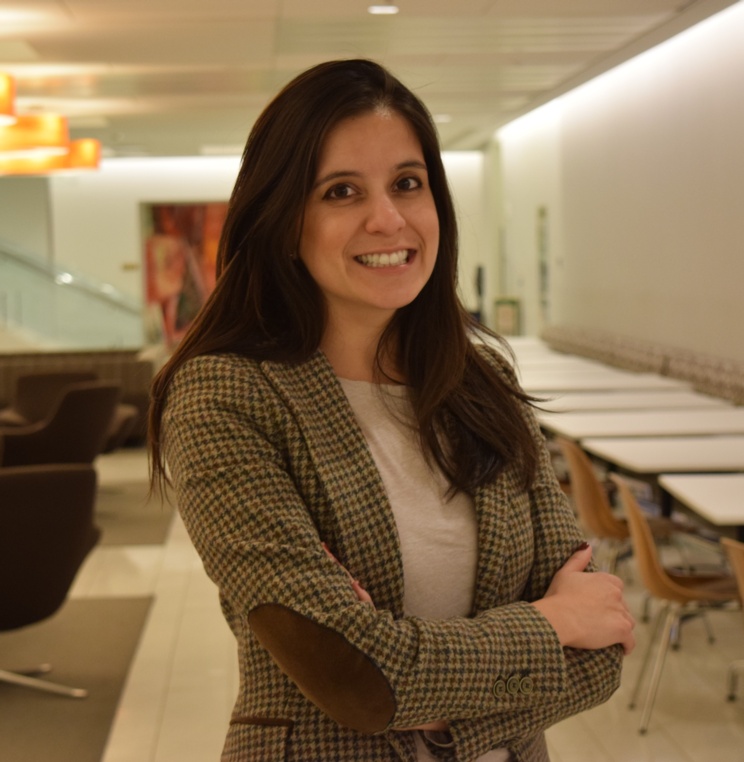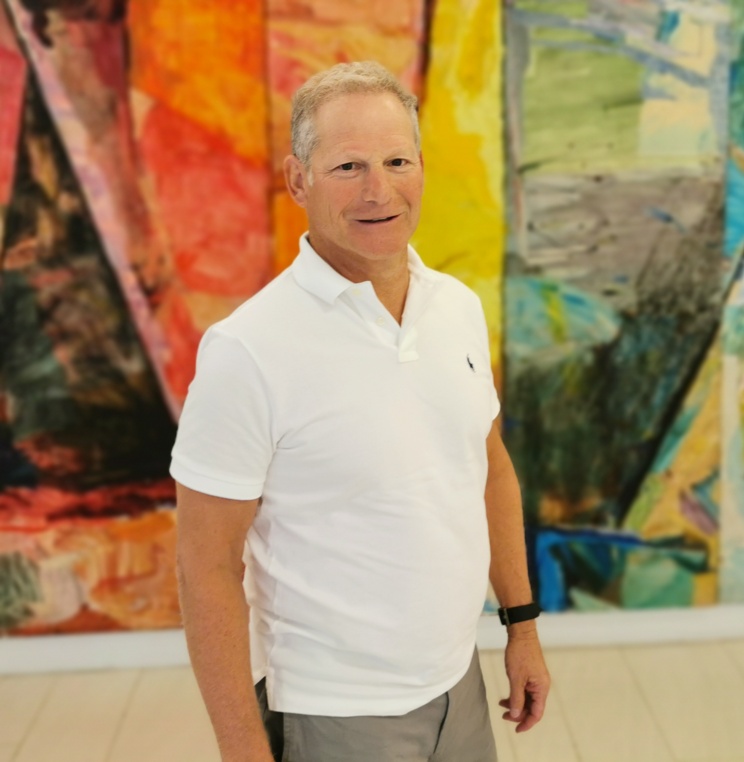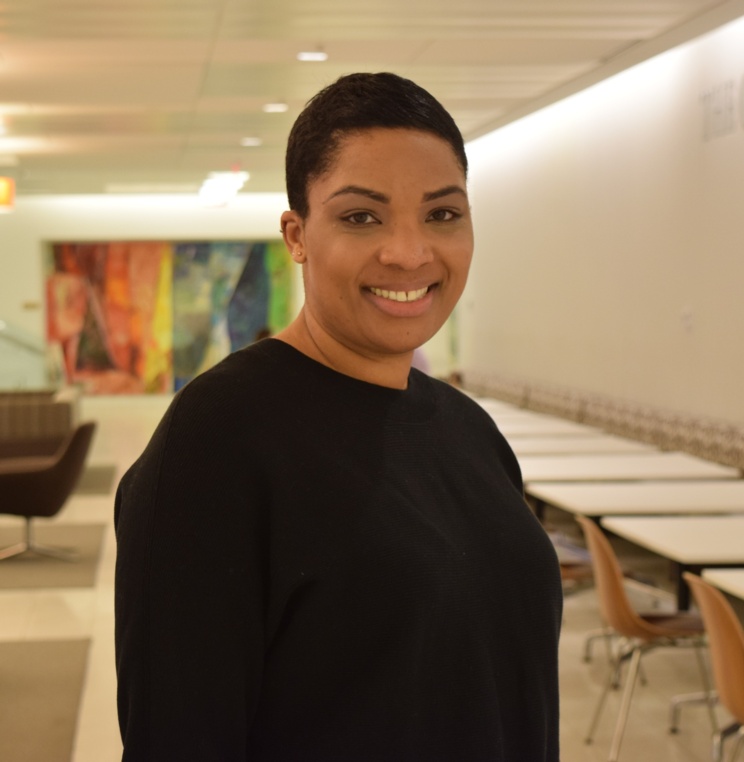AUWCL Alumni Return as Adjunct Professors
Feb. 11, 2020
By William J. Snape, III
Professor and Assistant Dean for Adjunct Affairs
One of the more satisfying feelings at American University Washington College of Law (AUWCL) is when alumni come back to give to the school and to our current students. This semester, we are highlighting three alumni who are now teaching a course during Spring 2020 as an adjunct professor at AUWCL. Below is a dialogue between these three distinguished alumni and me.
Snape: Who were your favorite professors at AUWCL?

Monica Trigoso '12:
My favorite professors at AUWCL were Professor Ira Robbins (criminal law), my Domestic Violence clinic professor Amy Myers, and adjunct professors Carlos Acosta and Jeffrey Wennar (Adv. Trial Advocacy-Gang Prosecution): I also audited their Obligations of a Prosecutor class as an alum.
Robert Pincus '80:
My favorite professors at AUWCL were: (i) Janet Spragens, who made personal and corporate tax interesting to a non-tax lawyer; and (ii) John Huber, who taught a seminar on takeovers and acquisitions, when that was a developing subject area, and who later became the Director of the SEC’s Division of Corporation Finance.
Myra Wilder '07:
I loved Cynthia Jones’ Evidence class; although I had no intention of becoming a litigator, she made a procedural course extremely interesting and relatable. Cynthia has also become a great friend to me, and I’m glad that I was able to take that course with her. In addition, I learned so much from the late Professor Perry Wallace. I took Business Associations (BA) with him my 3L year. The information presented in that course has been extremely relevant in my career, and there are elements of BA that I teach in my class. Professor Wallace was a great man, and I was blessed to have him as a professor and colleague.
Snape: How did AUWCL prepare you for the practice of law?
Monica Trigoso:
I'm an Assistant United States Attorney at the US Attorney's Office, DC and currently have a senior position in the homicide section. Previously, I held a senior position in the Violent and Repeat Offender Unit, and have also handled violent crime, and misdemeanor cases. Before that I was a staff attorney at Break the Cycle working with teens and young adults who were victims of domestic violence. I knew I wanted to litigate so I tried to take as many “on my feet” classes including several trial advocacy courses and advanced trial advocacy. I also took advantage of the AUWCL externship and AUWCL clinic where I was able a student attorney at the USAO-DC office. It was wonderful experience and semester long job interview which ultimately helped me get my dream job.

Robert Pincus:
I practiced corporate law in the Wilmington, Delaware office of Skadden Arps for 35 years, until my retirement in 2018. My practice focused primarily on corporate transactions, including mergers & acquisitions, private equity investments, dispositions and spin-offs, as well as corporate governance matters. I believe my time at AUWCL, together with the almost three years that I spent at the SEC, prepared me very well for my practice. The primary purpose of law school is to teach students how to think as lawyers. The various courses that I took in law school provided me with that skill. In addition, because I always knew that I wanted to be a corporate lawyer, the classes that I took, such as corporate and securities law classes, business associations, tax, accounting for lawyers and the like, helped me better understand what a corporate practice entailed.
Myra Wilder:
I decided fairly early during my legal education that I wanted to practice employment law, but when I attended AUWCL there were not many employment/labor law courses offered. However, the courses and experiences that I took helped shape my career, even though they were not specifically employment law focused. For example, I participated in the Civil Practice Clinic (now the Civil Advocacy Clinic) which taught me the practical skills of writing, communication, advocacy, and problem solving that I used in my first job as an associate at a labor & employment firm; as the AUWCL as the assistant director of Student Affairs; and in my human resources compliance roles at Marriott International and BAE Systems.
Snape: What is it like to come back to AUWCL to teach today’s students?
Monica Trigoso:
It's been wonderful to come back and teach in the same program (i.e., the externship program) that helped me get such wonderful experience as a student. Similarly, I've loved seeing the next generation of attorneys full of enthusiasm and energy with their motivation to make a difference. I like to feed off of them and work to coming up with ideas to help them succeed both in law school and after graduation.
Robert Pincus:
I have thoroughly enjoyed teaching the Deals course at AUWCL. In particular, I enjoy working with law students to help them understand the practical skills necessary to be corporate lawyers. In my practice, I often dealt with bright, young lawyers, who didn’t understand their roles in our practice. Over time, they learned how to be effective corporate lawyers, but they would have been ahead of their peers if they had been exposed to and practiced these skills as law students. I also realize that the current students are much more mature and worldly than my classmates and I were 40 years ago. That will bode well for them as they start their practice. My biggest challenge as a professor at AUWCL, is trying to learn the necessary technological skills. I think I have done much better in my second semester and I appreciate the help of my students in teaching me some of these skills. My return to AUWCL has also been a bit of "déjà vu all over again," especially when I ran in to Professor Egon Guttman in the elevator. I took two courses with Professor Guttman--a distinguished professor of the UCC and federal securities law--and he does not appear to have changed much since my years as a student at AUWCL.

Myra Wilder:
I was very nervous to return to AUWCL and teach. I first returned to AUWCL in 2010 into an administrative role, but teaching is completely different. In the beginning, I certainly underestimated the amount of preparation that goes into teaching, but it is satisfying to have the opportunity to develop a course and make it your own. I am fortunate that my husband is also an adjunct, so I was able to get some advice from him. In my opinion, the most important thing that you can do is be yourself. I think my students appreciate that I am authentic and present the material in different ways. I do a “compliance in the news” discussion at the beginning of each class. I believe this discussion helps the students think about compliance as a multifaceted concept that impacts so many parts of our lives.
Snape: What advice would you, and do you, give to today’s students?
Monica Trigoso:
One piece of advice I would give students is don't just do internships/externships/clinic but be the best intern they've ever seen. These opportunities are semester long job interviews and the best way to network and show employers that you will be a great asset as an attorney in 1-2 years. I gained valuable experiences from each of my externships/clinic which helped me get the next experience and job. Make connections with the attorneys and stay in touch with them as you progress in your career, take initiative and ask questions.
Robert Pincus:
My advice to AUWCL students is to understand that the practice of law is a marathon and not a sprint. Focus on the long term. Get as much training from great lawyers as you can get early in your career. Very few of us know where our practice will lead, but the better your skills are, the more opportunities you will have and be prepared for. You will continue to learn as you practice and as you continue to strive to be a better lawyer. Finally, find a mentor who will help you along the way, offer practical advice and tell it to you “like it is.” Having such a person in your corner is invaluable.
Myra Wilder:
Many law students try to avoid anything involving writing beyond their 1L Legal Rhetoric course and Upper Level Writing Requirement. I think that is a mistake. As an attorney, you will be doing a great deal of writing; and your audience is not always going to be another attorney. I recommend getting as much practical writing experience as you can, whether through coursework, internships/externships, or other outlets. Writing is an art, and you must invest the time and effort to perfect it. You should graduate from law school with a significant number of writing samples. It will make you more marketable, and show potential employers that you have invested time into such an important skill.